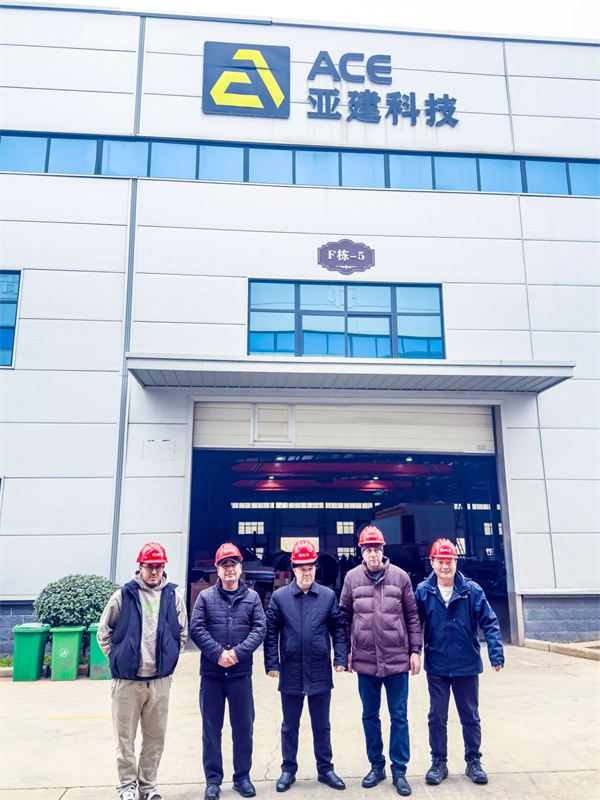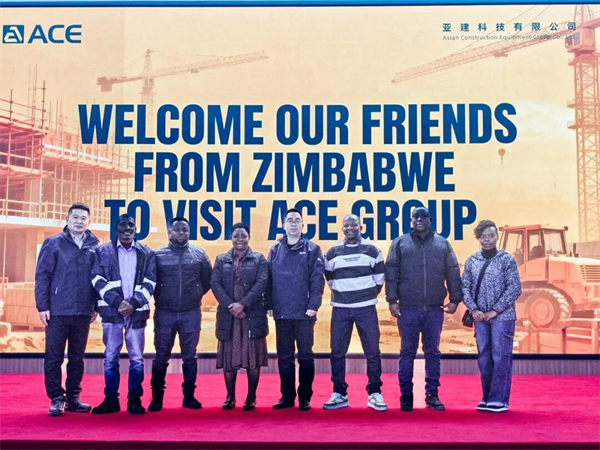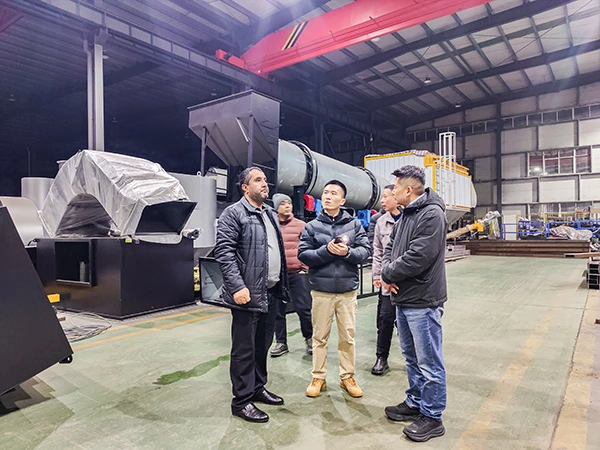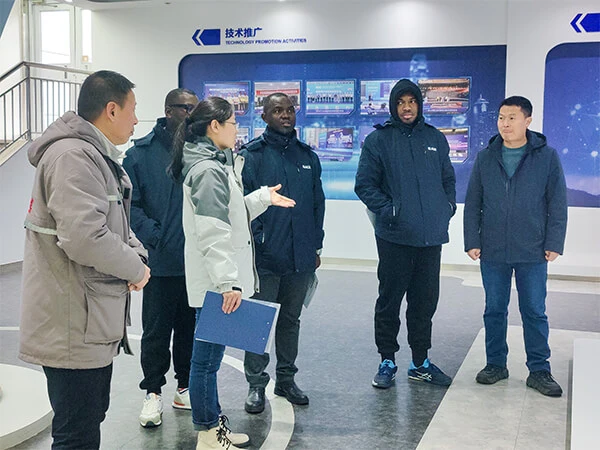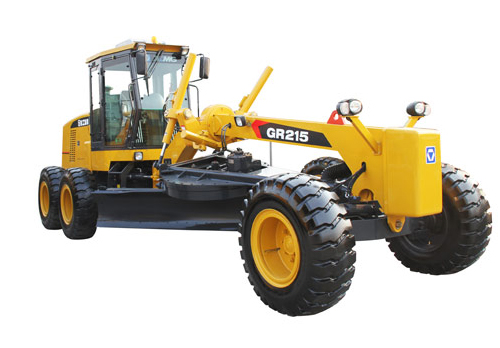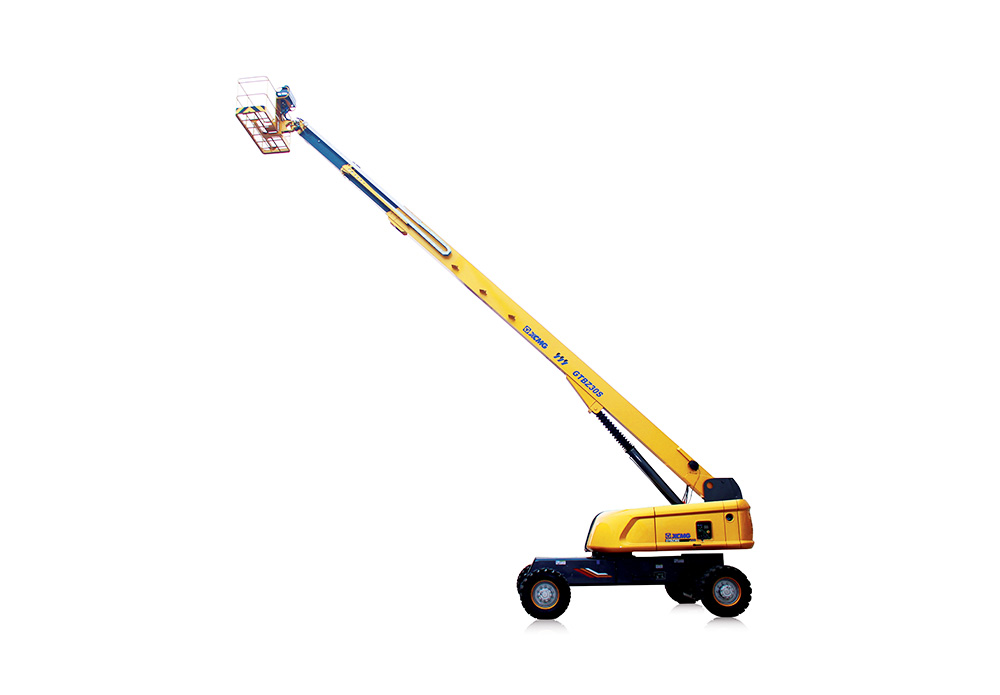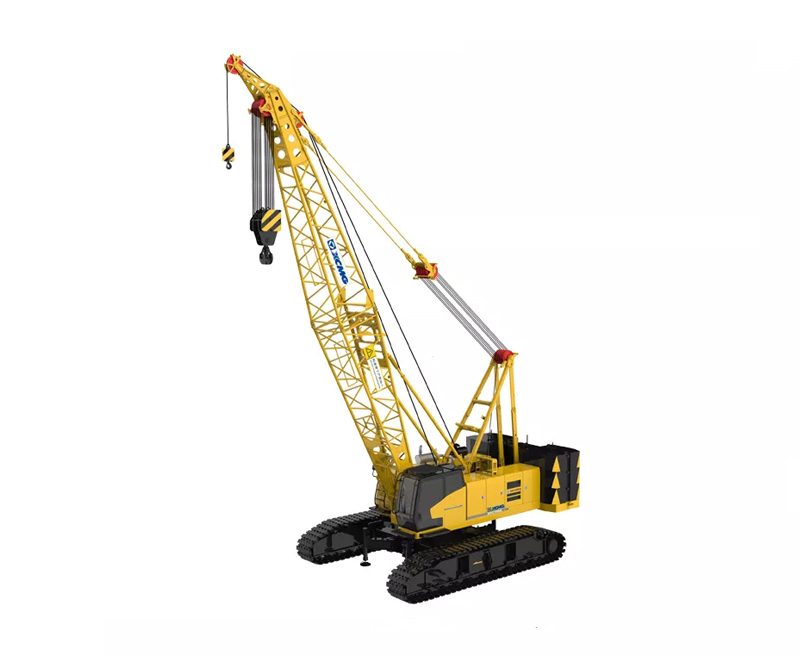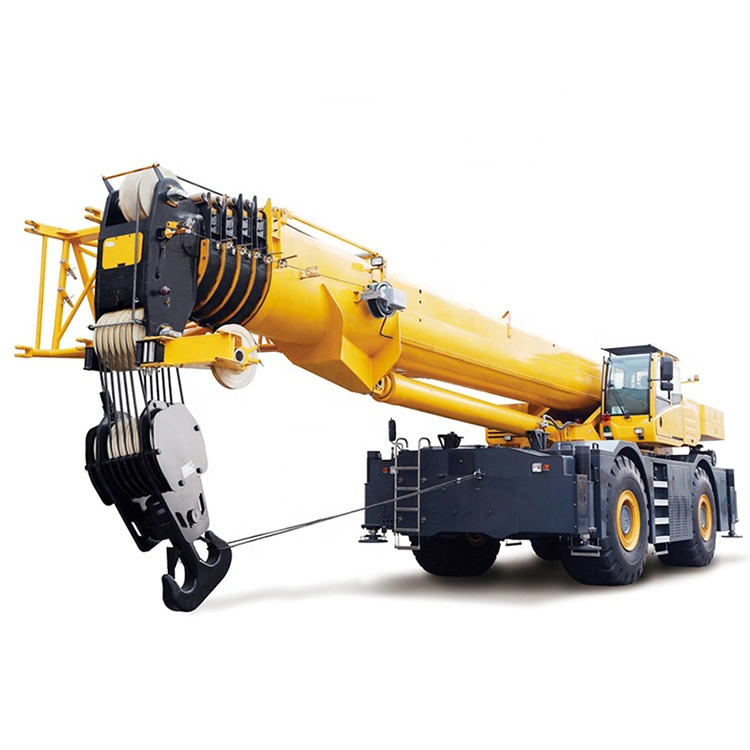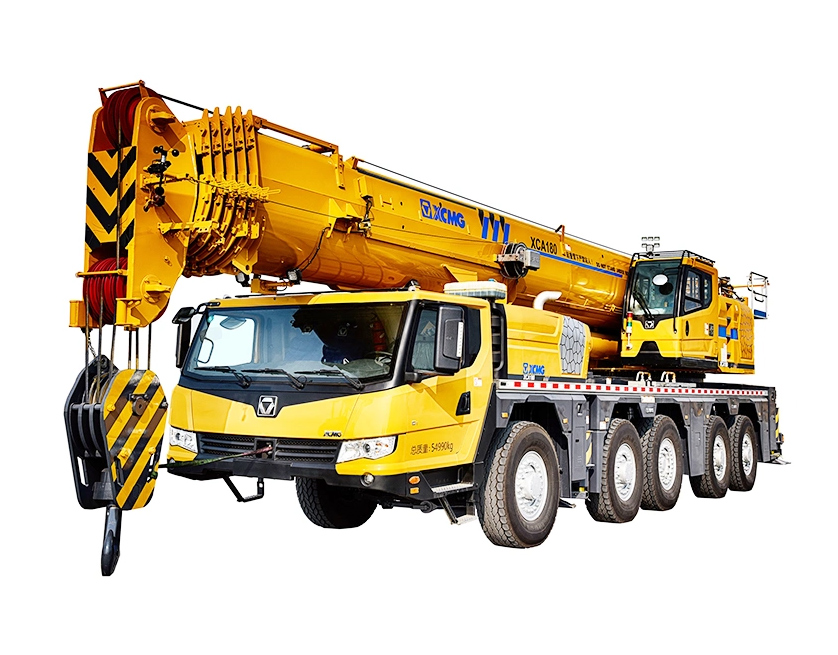"This is the most precious gift I've ever received. Many thanks to XCMG and the Foundation." In every family benefiting from the water cellar, the beneficiaries would hold our hands and keep expressing their thanks to the project staff. After two years, the logo of XCMG on the water cellar was still visible, fully demonstrating their cherish and love for the water cellar. From their words and eyes, we could really feel their gratitude and appreciation indeed.
41 water cellars of the first phase were completed in 2017. Two years have passed, and all families here are still using them.
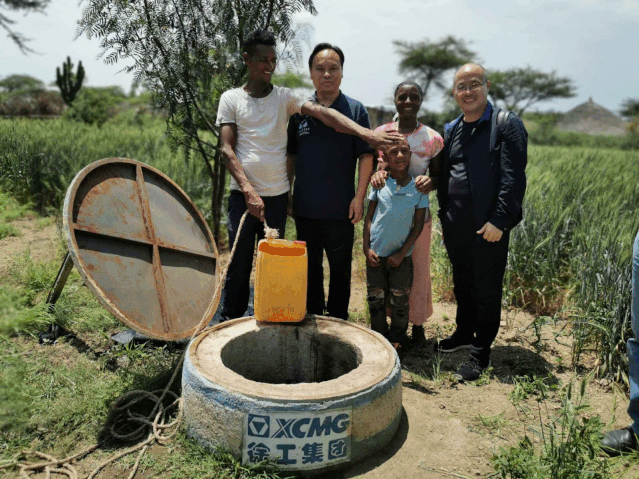
Abebayehu, Besheva and Debiwei, three common Ethiopian residents in Africa, are the No. 23, No. 22 and No. 19 beneficiaries of XCMG phase-1 African water cellar project.
This small water cellar makes us closely connected with the African people on the other side of our planet, and from which, we can see the change, the hope and the beauty of the world.
On the morning of September 21, 2019, entrusted by XCMG project team, representatives of China Foundation for Poverty Alleviation set out to visit the beneficiary farmers of XCMG water cellar project. After a 3.5h drive from the capital Addis Ababa, the capital, we finally arrived at the destination, a small town named Ghadaig in Amhara. Looking at the far horizon from the car, a green velvet ribbon was slowly expanding, and the bright green leaves against the blue sky were a vast expanse of teff, an exciting sight to see on the drought and yellow plateau of Ethiopia. Go into this green, and there standing the home of Abebayehu.
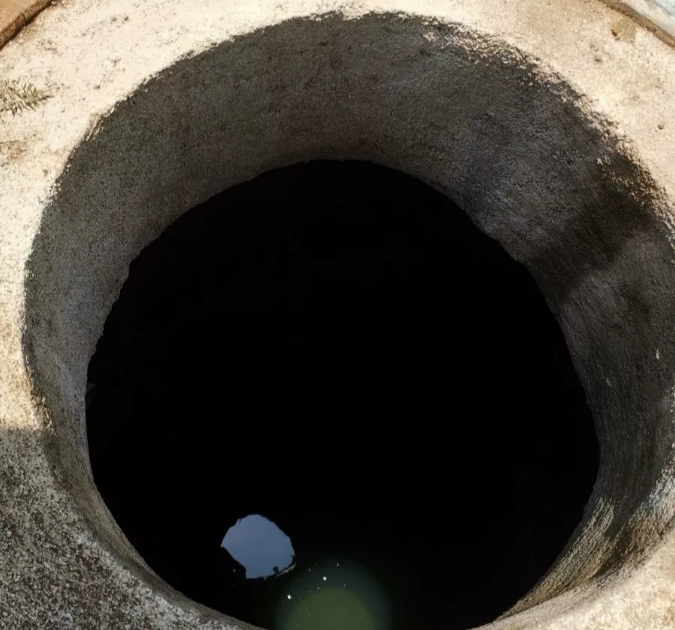
Underground water cellar built by XCMG, with a storing capacity of 30 cubic meters, can meet the water demand of a family of five people for half a year
The water cellar was built underground beside Abebayehu's house. When the rainy season comes, the rainwater will gather in the eaves along the tin roof of his house, and then flow into the water storage tank through the pipes, providing relatively clean water for the family during the dry season.
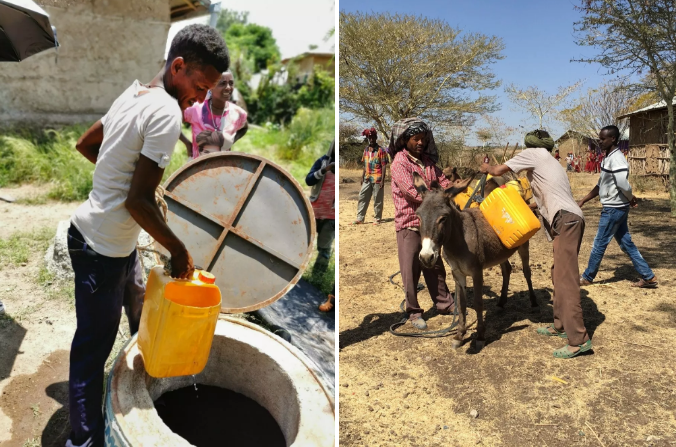
Abebayehu drawing water from the cellar VS Before the water cellar was built
When the Abebayehu family saw their familiar "Chinese friends", they welcomed us with great enthusiasm. As he demonstrated how to get water from the cellar, he introduced to us, "With the cellar, I have more and more time to stay at home in the dry season, pondering over better management. In the previous days without the cellar, my wife and I had to get up before dawn every day in the dry season. Our first thing was to go to the pool 15 kilometers away to fetch water. Most of the time was wasted, and there was not enough time for planting. At that time, we had no choice but to plant the grain crops that do not require too much management, e.g., wheat, corn and teff. Due to the lack of water, the output was quite unsatisfactory."
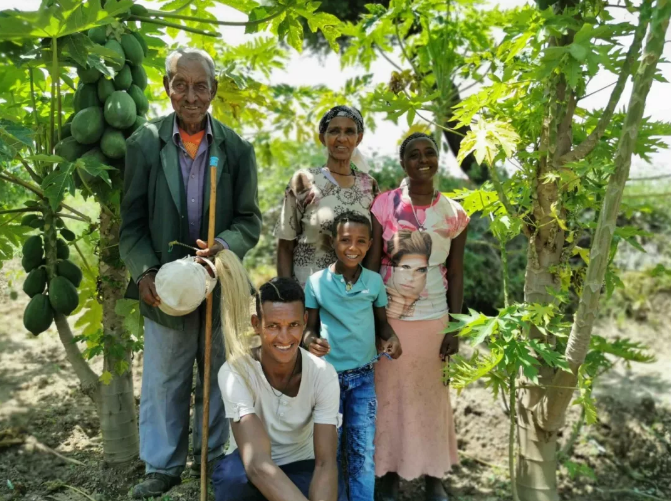
A group photo of the Abebayehu family in front of the fruit-bearing papaya tree
The hostess of No. 22 cellar family, said, "There is a pond in this community, where people go to get water in the dry season. My daughter and I have to clean up our buckets and hang them on donkeys every morning before dawn. Otherwise, we have to wait a long time. We are lining to get water. It takes a whole day to go back and forth, so we can hardly do anything when we come back. Now, there's no need to do that any more. We have more time to do housework and take care of livestock. My daughter can also go to school at ease."
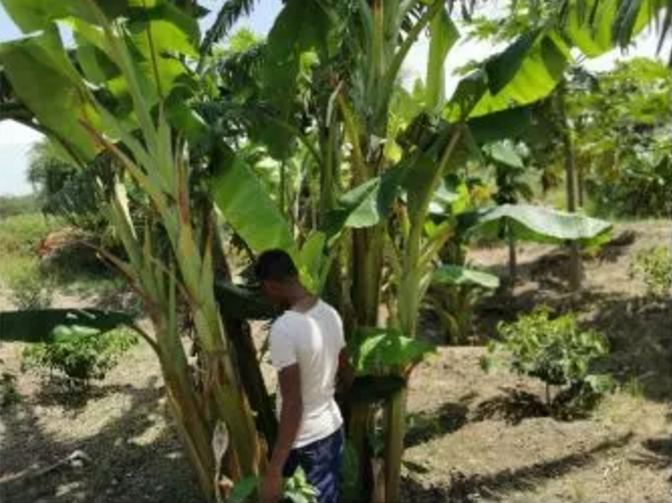
A banana tree planted by the Abebayehu family
In addition to the time and labor saved by the water cellar, Debiwei, the 56-year-old hostess of No. 19 water cellar family, also mentioned, "The pond only holds enough water for about two months during the rainy season, but it dries up in November. The rainy season doesn't come until June, and we have to buy water in town during the intervening months. Water for a bucket of 80L costs 50 birr. I need to buy water every three days and take four such buckets every time. This is a very big expense for our family. Basically, all the money my kids make doing odd jobs in town ends up buying water. This water cellar not only saves us time, but a lot of money. With the saved time and money, I can grow more food."
With the water cellar, my annual income increases by 5000 yuan.
The water cellar not only saves them time and labor in getting water, but also enables them to devote more time and energy to farming. It also allows them to focus on the family economy for income increase, such as increasing livestock breeding and planting cash crops.
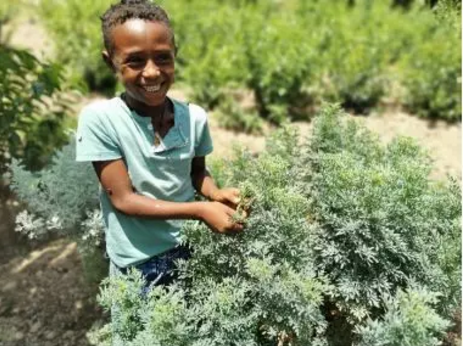
Coffee and coffee vanilla planted by the Abebayehu family
When standing in his backyard, we were surprised to see fields of green wheat and peppers, orange, lemon, papaya trees, banana trees, coffee, herbs and vegetables. Two years ago, the land was still deserted.
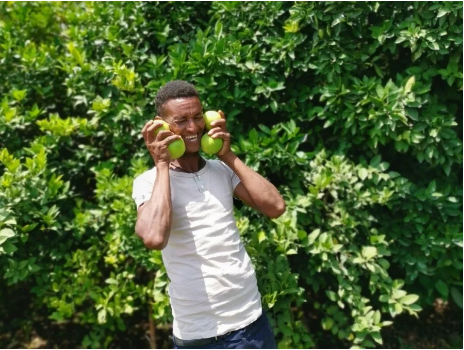
Orange trees planted by the Abebayehu family
"These are all planted after the water cellar was built. When the papayas were ripe, I sold them with oranges, earning more than 20,000 birr (about 5000 yuan) a year. The trees will bear more fruits than last year, so our income will increase accordingly." Abebayehu looked around and introduced to us, "Do you see that bucket? It's a gift from the Agriculture Ministry for my good job done. I planted pepper for the first time this year. I'm not sure how much I can get in return, but they're growing well. I'm confident. Besides, I also doubled the number of chickens and goats I raise this year. Now there are 50 goats. It won't be long before I can sell eggs and lambs. I'm planning the future of our family hopefully." Though his words need translation, we were still impressed by his pride, happiness and hope.
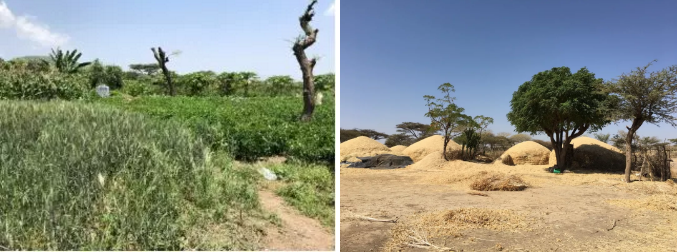
Backyard of the Abebayehu family at present VS Backyard of the Abebayehu family two years ago
Besides us, other beneficiary families were also touched. For example, Besheva, the hostess of No. 22 cellar family, said that she saw how the Abebayehu family used the cellar. Inspired by this, in addition to the original two donkeys, Besheva raised 20 goats and 2 cows from last year, and planted some edible vegetables for the family's daily use this year. "Our cellar is on the ground. It doesn't hold as much water as Abebayehu's, so we don't raise that much poultry. But we've earned more than 10,000 birr from selling milk and lambs."
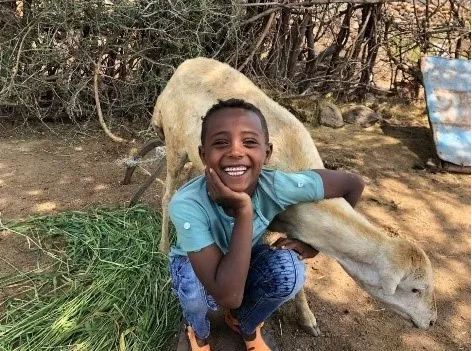
Lamb raised by the Abebayehu family
Debiwei, the 56-year-old hostess of No. 19 water cellar family, said, "Now we can easily feed our livestock (4 cows, 4 goats and 1 donkey), and grow papayas and vegetables in the yard to feed our family. I know the Abbayehu family is also doing well, and even the government officials visited his house before. I told my son to learn from them. "
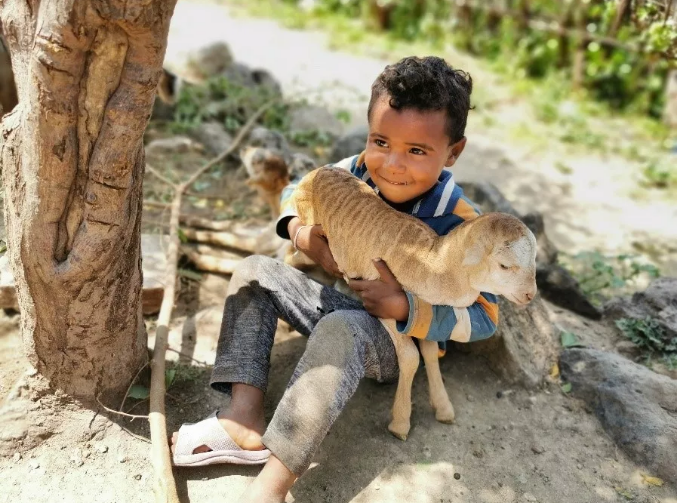
Lamb raised by the Debiwei family
We can't help but wondering that if a project wants to help beneficiaries, the best way is to help them get involved, make them realize that their quality of life can be improved through efforts, and teach them skills for changing their future, rather than waiting for others to help them. This change in thinking is most valuable, and reflects the significance of introduction of sustainable development concept by XCMG into global public welfare projects.











